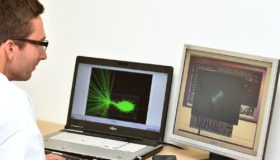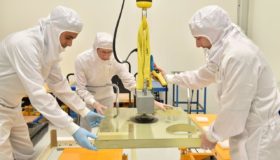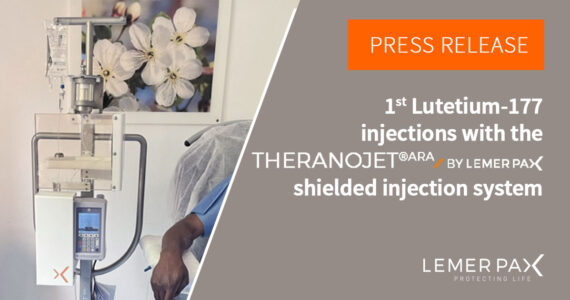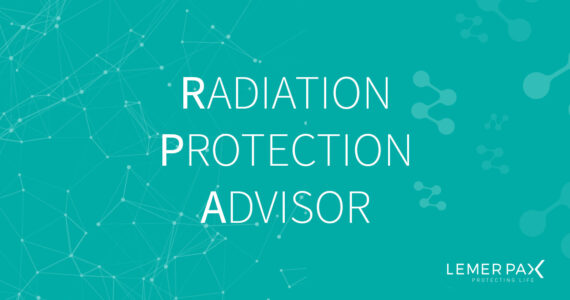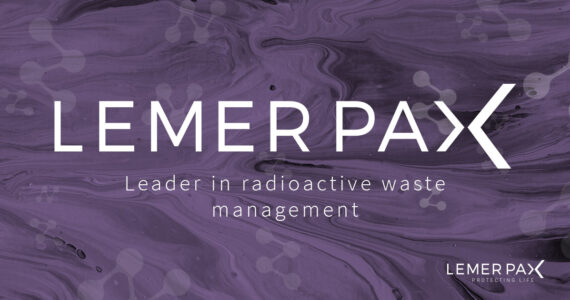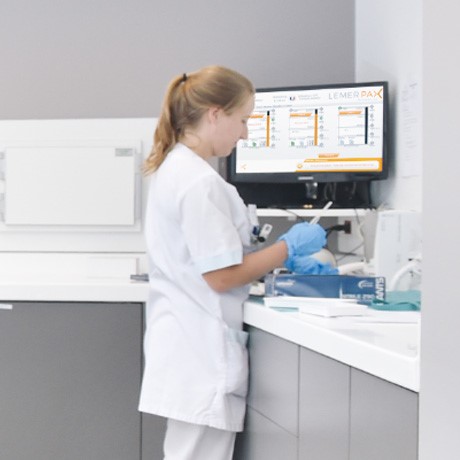
Radioactive waste management: for secure storage and optimised decay
Radioactive waste are radionuclide-contaminated fluids, generally coming from radioactively contaminated sinks, showers and toilets in Nuclear Medicine departments, as well as from shielded rooms used for diagnostic and therapeutic treatments.
They come not only from hospitals, but also from nuclear power plants, research laboratories, mining operations, oil exploration and other industries that are sources of contamination/discharges.
Radioactive effluents emit radiation that can be harmful to the environment and human health. They must therefore be managed with particular care, from production to final discharge into the wastewater system, subject to compliance with a number of conditions.
Operating in a Nuclear Medicine department
Radioactive effluents in a Nuclear Medicine department mainly
come from diagnostic and therapeutic procedures using
radioactive substances
This may include imaging tests such as scintigraphy scans and Positron Emission Tomography (PET) scans. This results in liquids containing radiopharmaceutical products from preparation and infusion rooms, and from toilets used by patients administered radiopharmaceuticals labelled primarily with Technetium-99m (99mTc).
- Radioisotopes resulting from diagnostic procedures are stored either in decay tanks for wastewater from lab benches and sinks in hot labs, or in delay tanks for blackwater from standard toilets.
- Radioisotopes resulting from therapeutic treatment procedures are stored either in decay tanks for wastewater from lab benches and sinks in hot labs and separation toilets with effluent management using surface pumps, or in decay tanks for blackwater, with effluent management using submersible pumps.
The collection systems are designed to minimise the risk of contamination and ensure safe waste management.
These effluents are released into the hospital wastewater systems once they have decayed in accordance with current regulations. Equipment on the tanks and retention basins, such as measuring probes, level sensors and leak detectors provide operators with real-time information on tank levels and feedback on events and alarms.
Managing radioactive waste is a major challenge for all stakeholders: industry, regulatory authorities, public authorities, local communities and the general public. As a leader and historic forerunner in radioactive effluent management, Lemer Pax offers you the highest standards of quality and service to protect the environment by ensuring radioactive decay.


